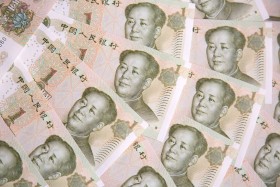The Chinese yuan is rallying against multiple currencies to kick off the trading week, buoyed by industrial production and retail sales beating market expectations. With the first phase of a comprehensive US-China trade agreement established, global financial markets have been extended some certainty, which is good news for the worldâs second-largest economy and its currency.
According to the National Bureau of Statistics, industrial output surged 6.2% year-on-year in November, up from the 4.7% gain in October. The reading beats median estimates of 5%. Output gains were found in manufacturing, mining, utilities, chemicals, electrical machinery, textiles, power equipment, and metals. The only industry to witness a decline was transport equipment.
In November, retail sales soared 8% YoY, up from a 7.2% jump in the previous month. This was also greater than the market forecasts of 7.6%. The sharpest increases were situated in cosmetics, home appliances, furniture, and personal care. There was also a slight rebound in clothing, crude oil, and office supplies. The only sectors to witness a drop were building materials, telecommunications, and automobiles.
The new home price index did rise 7.1% last month YoY, but it fell short of expectations.
On the investment side, foreign direct investment rose 6% in the first 11 months of 2019, while fixed-asset investment year-to-date advanced 5.2%.
China is enjoying a sigh of relief after Beijing and Washington struck a deal on Friday that would eliminate the December 15 tariffs that would have added 15% levies on $160 billion in Chinese goods. As part of phase one, existing tariffs would be reduced and China would purchase up to $50 billion in US agriculture. Essentially, the first phase is what the worldâs two largest economies agreed upon in October.
It was recently reported that US Trade Representative Robert Lighthizer confirmed that Beijing would purchase at least $16 billion more in agricultural products in each of the next two years. However, analysts dispute this figure, arguing that there is not enough demand in China for US products, especially if the agriculture is soybean due to the African swine flu and imports from other key markets.
The USD/CNY currency pair rose 0.14% to 6.9825, from an opening of 6.9729, at 18:23 GMT on Monday. The EUR/CNY climbed 0.37% to 7.7816, from an opening of 7.7528.
If you have any questions, comments, or opinions regarding the Chinese Yuan, feel free to post them using the commentary form below.
Chinese Yuan Rallies As Industrial Output, Retail Sales Beat Forecasts
